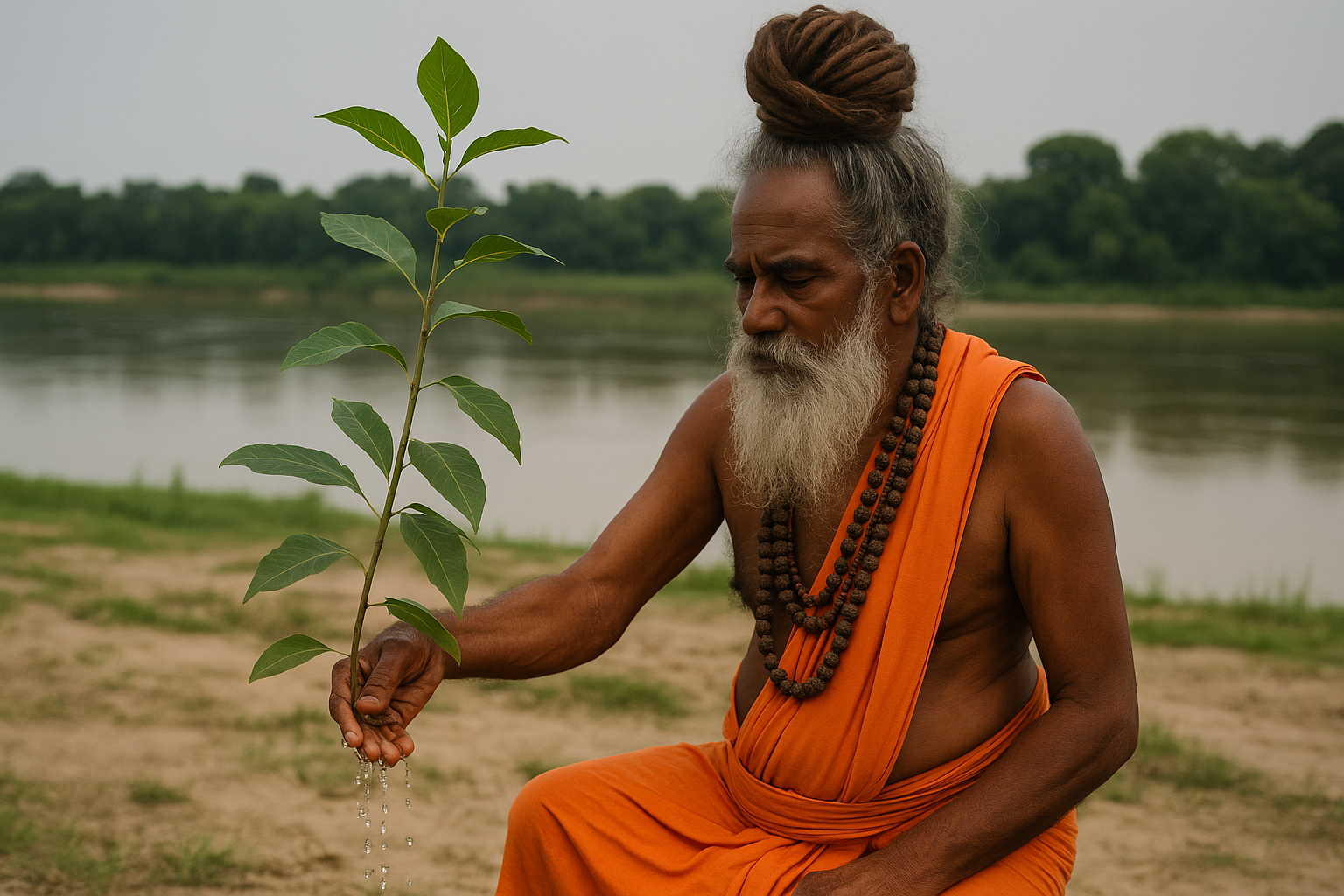Sacred Duty to Nature: Digambar Akhara’s Commitment to Environment & River Conservation
In Sanatan Dharma, nature is not a resource to be exploited but a living embodiment of divinity. Rivers like Ganga, Yamuna, Saraswati, and forests, mountains, and animals have been worshipped for millennia as sacred manifestations of the divine. Upholding this timeless principle, Digambar Akhara has undertaken numerous environment and river conservation initiatives to protect what is sacred—not just in scripture, but in spirit and in action.
As humanity faces unprecedented environmental challenges, the Akhara’s initiatives stand as a shining example of eco-dharma—the blending of spiritual wisdom with ecological responsibility.
A Dharmic Call to Preserve Nature
Inspired by Vedic teachings, the saints and disciples of Digambar Akhara recognize Bhumi (Earth) and Jal (Water) as the lifelines of existence. They advocate that harming nature is equivalent to harming dharma. Thus, environmental protection is not optional—it is a sacred obligation.
The Akhara’s message is clear: “Worshipping the Ganga must include keeping her clean.”

Major Initiatives
- Ganga and Yamuna River Cleanup Drives:
Regular campaigns are held along the banks of sacred rivers, especially in Haridwar, Prayagraj, and Varanasi. Volunteers, saints, and local youth join hands to clean ghats, remove plastic waste, and conduct awareness yatras. - Tree Plantation Campaigns:
To combat deforestation and climate change, Digambar Akhara conducts van mahotsavs (forest festivals), where thousands of saplings are planted around temples, ashrams, and public areas. - Workshops on Eco-Dharma:
Educational sessions teach devotees and villagers about sustainable living, cow protection (Gau Seva), plastic-free practices, and water conservation rooted in ancient dharmic values. - River Conservation Pledges during Festivals:
During large religious gatherings like Kumbh Mela and Dharm Sansads, environmental oaths are administered to tens of thousands of attendees—encouraging them to treat rivers as mothers and not dumping grounds.
Engaging the Community
The Akhara believes in grassroots participation. From school students and pilgrims to government officials and fellow saints, the initiatives seek collaboration at every level. The emphasis is on action over mere worship, and creating awareness through example.
Additionally, eco-friendly practices are strictly followed at all Akhara events:
- No single-use plastics
- Use of leaf and clay utensils
- Composting organic waste
- Solar-powered systems in ashrams
Spiritual Ecology in Action
What sets Digambar Akhara apart is that their environmentalism is rooted in spirituality. They see the rivers as goddesses and the forests as ashrams of sages. By reawakening this reverence in modern minds, they bring a deep cultural and emotional connection to ecological activism.
Conclusion
As stewards of Sanatan Dharma and protectors of sacred traditions, Digambar Akhara leads with action—defending nature not just as a duty, but as devotion. In their conservation work, one finds a powerful message: to heal the Earth is to serve the Divine.






